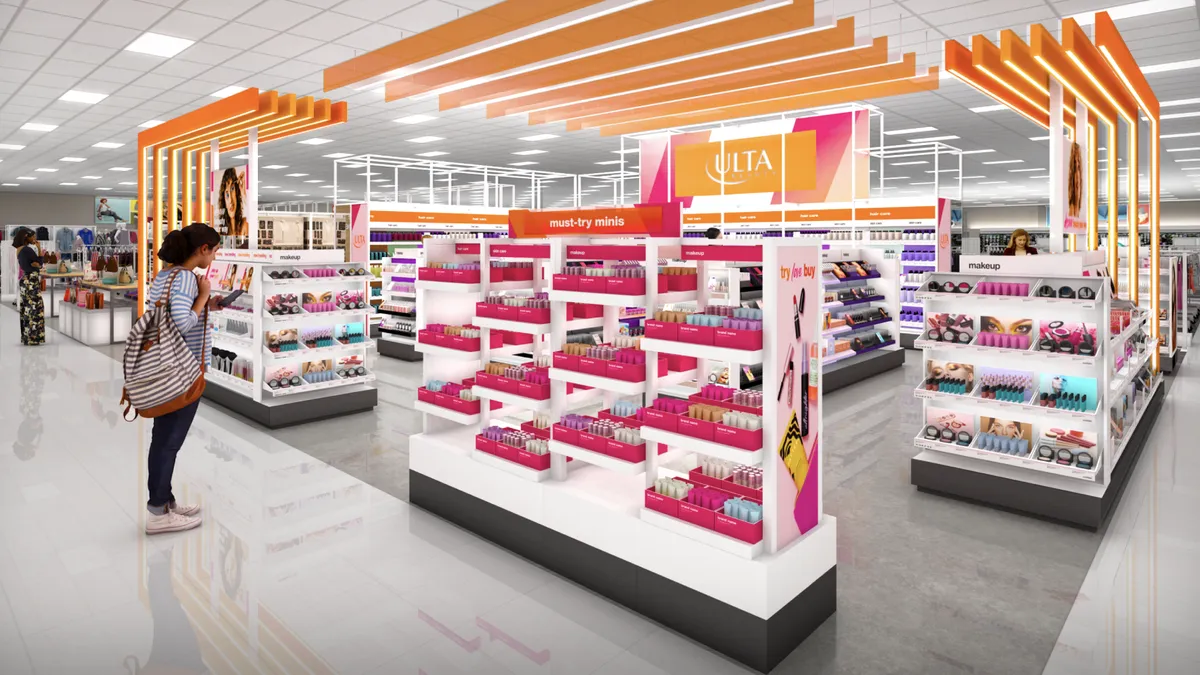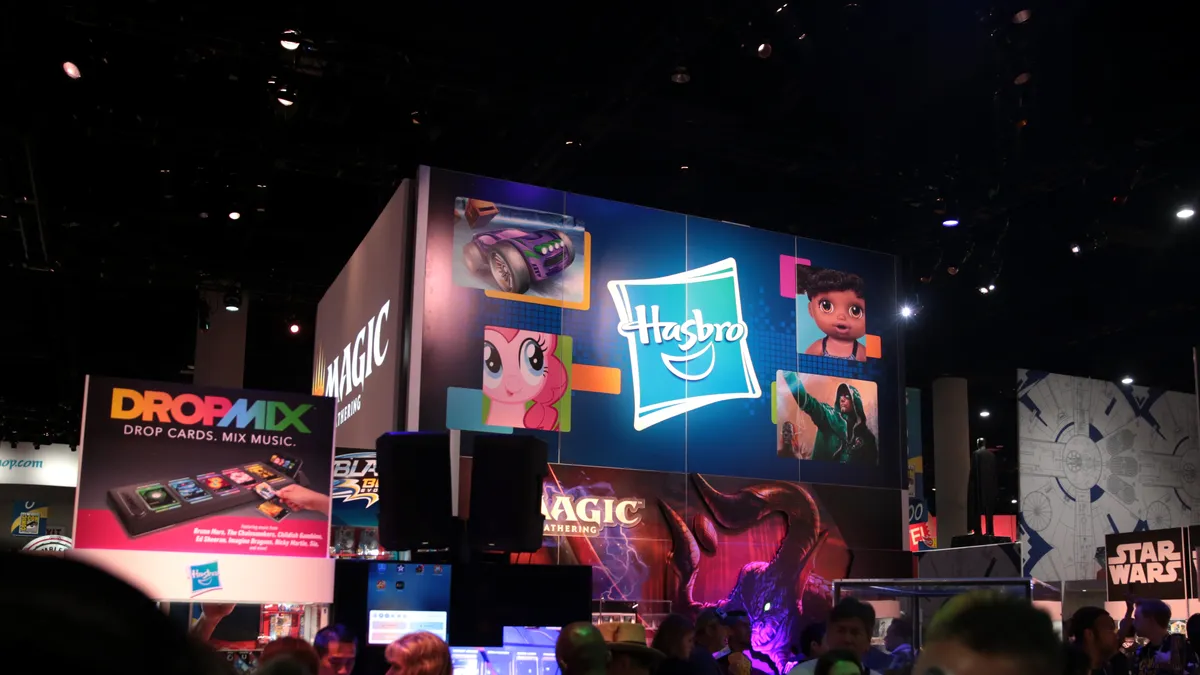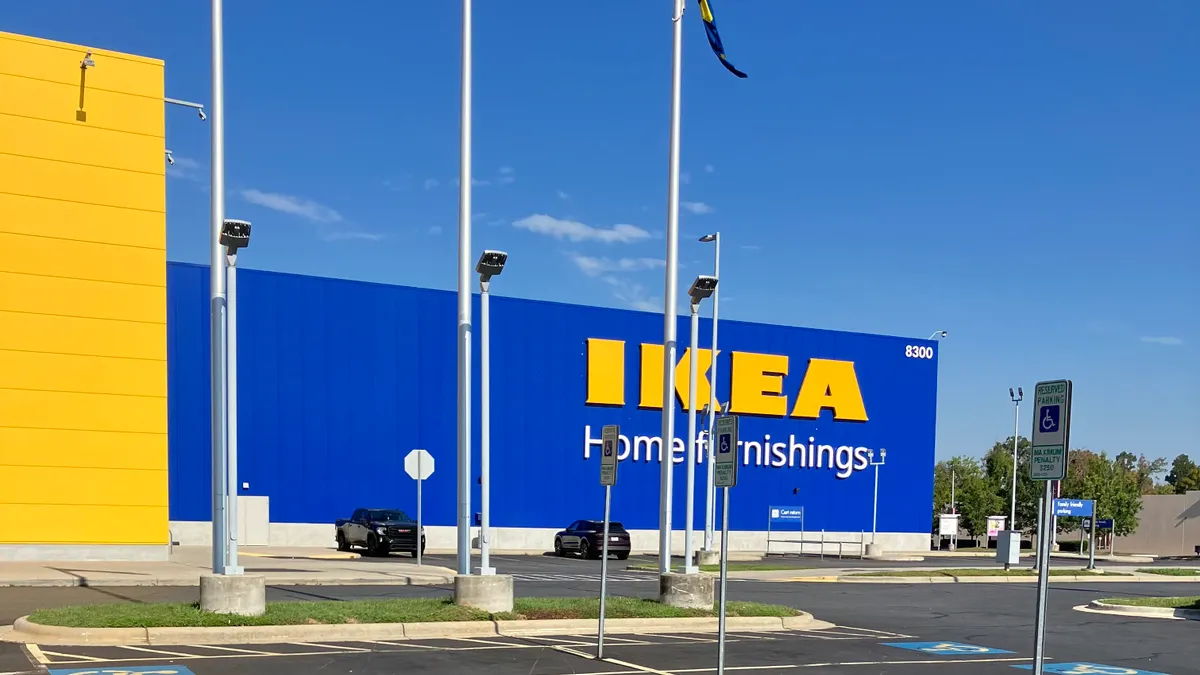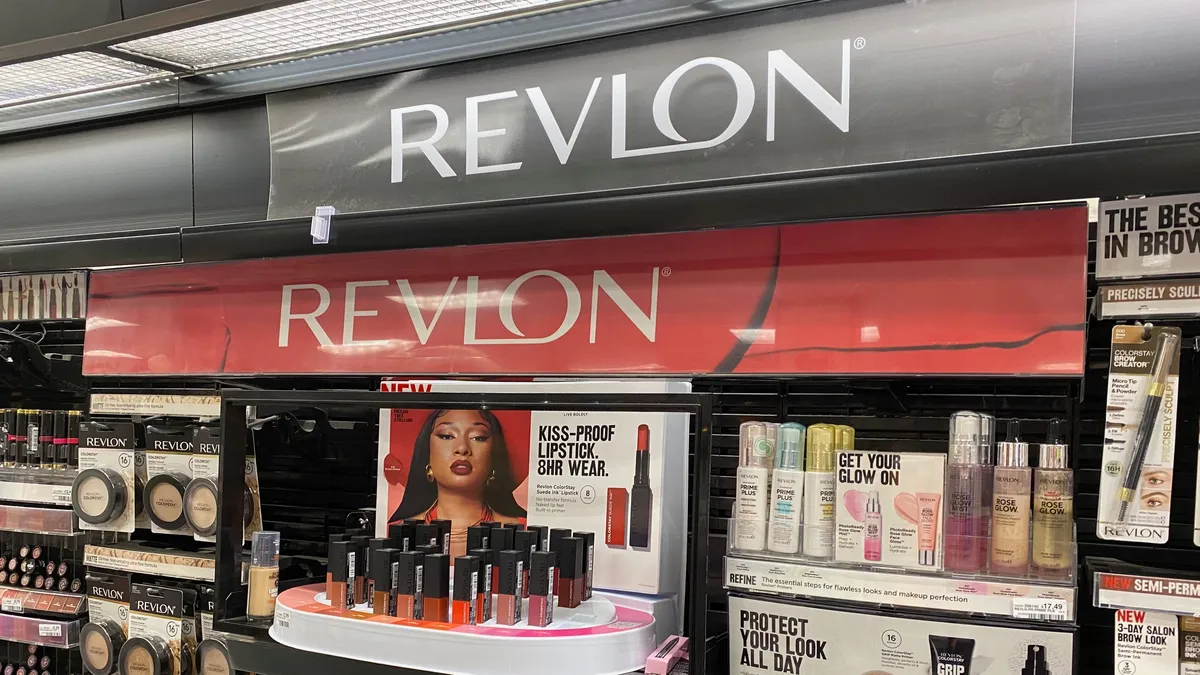Ulta Beauty and Target on Thursday took the Gwyneth Paltrow approach to breaking up — consciously uncoupling through a joint press release.
Both companies agreed to end the Ulta Beauty at Target shop-in-shops in August of 2026, about five years since the deal debuted. Customers and employees need not worry, however, as the companies “remain committed to delivering a seamless shopping experience and product availability” during this time and vow to support everyone through the transition.
The companies, which are each slated to report earnings this month, shared few details behind the mutual decision and did not respond to requests for comment.
“Staffing needs, loyalty program synergies, shrink, and [return on invested capital] were likely key considerations,” TD Cowen analysts said in a Thursday note shared with Retail Dive, which also referenced “conscious uncoupling.”
Target has been tackling out of stock issues more generally since the Ulta partnership debuted in 2021. Similar to other mass retailers dealing with theft, Target also increased its use of locked merchandise, including beauty products, since the partnership began. The locking up of merchandise to prevent shrink had become a point of frustration for Target shoppers, per comments from GlobalData Managing Director Neil Saunders last year.
However, Ulta CEO Kecia Steelman, while serving as COO in 2023, noted that the rollout of locked fragrance cabinets at the company’s own stores was improving sales.
Both retailers are steadfast on improving themselves for the time being, emphasizing the need to master retail fundamentals.
“It starts with retail fundamentals,” Target CEO Brian Cornell told analysts on an earnings call in May when asked about a turnaround plan moving forward. “We know we've got to be reliable. We've got to be consistent. We've got to make sure we are managing inventory effectively in this environment. We've got to continue to make progress with shrink. Those are fundamentals each and every day that are embedded in our business.”
Steelman echoed a similar perspective during an earnings call in March.
“It’s clear to me that how we’ve operated must change,” Steelman said of the Ulta stores, noting specifically a need to improve presentation and inventory levels across its fleet.
In the immediate term, industry analysts foresee minimal impact to revenue from the partnership dissolution.
“Target shop-in-shops contribute to Ulta’s other revenue line, which also includes credit card income and loyalty point redemptions,” William Blair analysts said in a note Thursday. “Target pays Ulta a royalty on product sold, taking ownership of the inventory and staffing responsibility ... Given the agreement extends beyond 2025, this announcement should not impact the company’s fiscal 2025 results or guide.”
However, Target was downgraded from a neutral rating to underperform by Bank of America Research Analyst Robert Ohmes on Friday.
Instead, Ohmes cited increasing longer-term sales and margin risks “given slowing digital sales growth, a lack of scale in digital advertising and 3P marketplace, elevated tariff, pricing and merchandising headwinds, and increasing competitive threats from [Walmart] and [Amazon].”
The decision to end the Ulta partnership could exacerbate risks to merchandise given the dynamic sourcing environment in play right now, Ohmes added.
Looking at Target’s counterpart, the deal was beneficial to Ulta’s margins, but not a significant contributor to its larger performance, Jefferies analysts noted.
“We think both companies have respective longer & tastier fish to fry,” TD Cowen analysts said. “Ulta needs to focus on acquiring new exclusive brands, competing against Sephora – Amazon – TikTok, rethinking the store and format, and going global.”
“Going forward, our take is that the burden is on [Target] to now find the appropriate way to acquire masstige, fragrance, and prestige beauty brands,” the TD Cowen analysts continued. “We do see this as an opportunity for [Target] to strategically leverage the Target + 3rd party marketplace in a more connected manner.”
Ultimately, the retailers have grown since the 2021 launch of the shop-in-shops — perhaps to a point where they’re now able to compete more directly with each other in the beauty category. Ulta and Target have a 74% store overlap and Target could leverage its experience from the partnership to enhance its offerings across its full fleet, per Jefferies.























